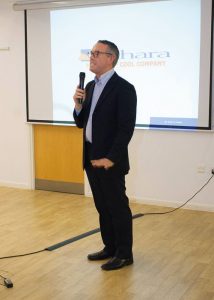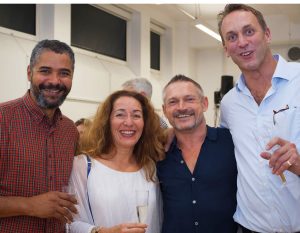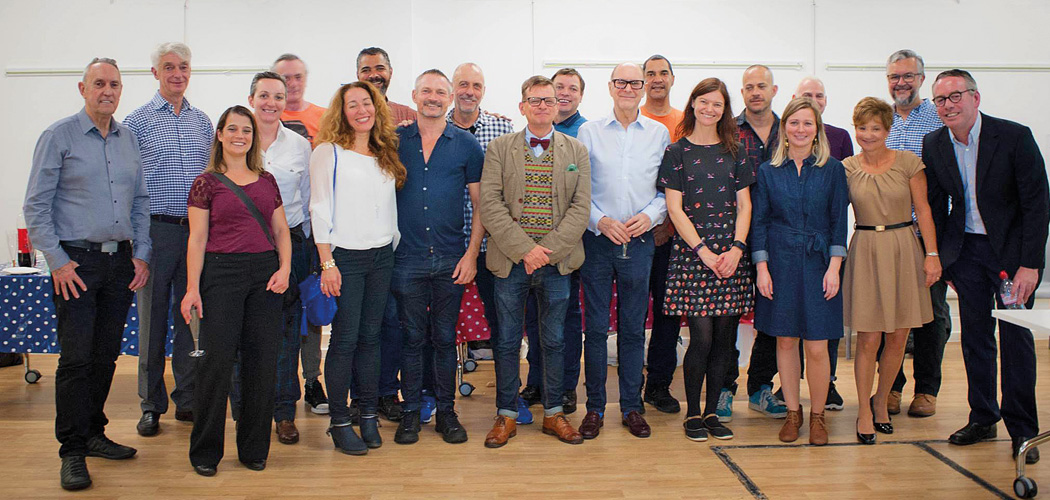The Positive Health programme at Central London YMCA on Tottenham Court Road celebrated its 20th anniversary last week at an event which brought former and current participants and organisers together. The programme is the only exercise referral programme that deals directly with patients who are HIV positive. Co-ordinator Victoria Brown explains what the programme is all about.
How and when did Positive Health start?
The Positive Health Programme was started in 1997 here at the Central YMCA by Deborah Potts and Susan Warner. At the time there was no link between when patients were discharged from hospital or physiotherapy and continuing with some form of supported physical activity. The programme was especially important as it gives participants the opportunity to engage in exercise to help them manage their physical and mental health in the longer term.
What is the relationship with the YMCA?
The programme was set up and established at Central YMCA and is the only exercise referral programme that deals directly with patients who are HIV+. It falls under our community programmes department which also deals with older adults and children and youth and forms part of our charitable projects. All our instructors who work on the programme have had training in working with patients who are HIV+ and have a sound knowledge of HIV medications and their side effects. We are also very fortunate to receive funding from Camden/Islington Clinical commissioning group which helps to part fund the programme.

Who can get on the Positive Health programme?
The programme is available to anyone living with HIV who would benefit from help with being more active or starting exercise with support and guidance.
Can you tell us what the programme covers?
The 12 week exercise programme provides participants with support in the gym, opportunities to try exercise classes and swimming. There are three supervised gym sessions every week for which one must be attended. Positive Health members have exclusive access to a range of therapies including reflexology, sports/holistic massages, hypnotherapy, Life Coaching and energy healing. Our Nutritionist will be able to provide you with general nutritional advice and will look at ways in which you can optimise your nutritional intake in relation to your individual needs.
Social activities include a monthly tea and chat, two social support groups every month, evening trips such as the theatre and bowling. A yearly summer picnic, a weekend away and a Christmas gathering.

Who will participants be trained by/working with?
The programme is run by three part time members of staff, myself and my colleagues Becky O’Gorman and Teresa Waite. We see participants for their initial sessions and for the supervised gym sessions. We are also lucky to have a team of qualified exercise referral volunteers to help on the gym floor, to teach classes and to provide our wonderful services such as classes, therapies and support sessions. Many of our volunteers have come through the programme and now provide support for the programme.
How do you get recommended for the programme?
To be referred on to the programme you would need you GP, HIV consultant or clinic nurse to fill out our referral form, which gives us your medical history. Once the form has been completed we will invite you in to the gym for an information session to explain how the programme works and to have a look around the gym. It is also an opportunity to ask questions and to meet other new people starting on the programme.
You work with lots of the HIV clinics, can you tell us about that?
We accept referrals from all HIV clinics in London, no matter which borough you live in. Many of the doctors, nurses, dieticians and physios understand the importance of exercise and activity for people living with HIV and promote and support our programme. For example we have a strong relationship with Mortimer Market, who have have been referring to us for 20 years and whose Patient Reps have all come through the programme.
Is fitness important for people who are HIV?
Yes. To manage side effects from medication such as promoting muscle mass, managing lipodystrophy, aid better sleep, increase appetite, mental health, social interaction and keeping as healthy as possible as ageing.
What are the plans for Positive Health for the future?
Setting up a peer mentoring service for the Positive Health programme involving our current members who have qualified as peer mentors to run this service. Offering more support to our members who are currently trying to get back into work by offering workshops and peer mentoring. Engaging more women on to the programme.














